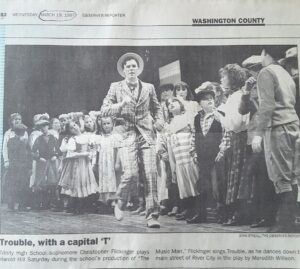
High-quality work cannot get done without high-quality followers. Chris has said it before – “A leader must have followers and followers are not the same thing as prisoners!” (link back to Chris’ post). The challenge for you and other leaders is that not all followers are created equal. The science says there are many types of followers.
In Improvised Comedy, or better known as “improv”, there is an exercise called “follow the follower”. Unlike other kinds of comedy on stage, improv is completely unscripted. There is no “leader” in charge. Amazing scenes are created by the comedians following each other. Not a single person in the scene knows where the storyline is going – they just follow the next person as a story plays out. Authentic magic happens when two or more people are connected, focused, and listening for the actions, emotions, and hopes of each other on stage.
Take a closer look at the cover picture of this post. Yes, that’s a young 16-year-old Chris as the lead in his high school musical. He’s been “on the stage” for a long time and there is a tremendous technique actors use that you can use too – off stage.
Audiences love improv because it is real. It is not scripted. This same connection can be felt between a great leader and his/her followers. Outsiders can feel this and want to work at these organizations.
In improv, a great scene is created only when the second actor accepts everything that is created by the first actor. In other words, they creatively follow other followers. Great leadership presence only occurs when the leader steps off that stage and out of the spotlight and into the world of their followers.
Challenge:
How does a leader create a workforce that are not just followers? They are improv participants. They are uniquely passionate about their work, bring an incredible amount of energy to each hour of the workday, and are active participants who help create and shape the work product.
Psychological Principle:
Do a Google search for the word followership and you get 142,000 results; do a search for leadership and you get 134 million. Yet without followers, a leader is a lonely figure. Followers deserve way more of the spotlight!
It cannot be assumed that people will follow any leader. They will follow a leader they believe in and who sees and hears them. Dr. Robert Kelley, author and professor at Carnegie Mellon University, has been in the forefront of research on followers and believes that there are 5 kinds:
- Sheep
- Yes People
- Alienated
- Survivor
- Effective
Kelley coined the term “exemplary followership”. They are actively engaged, independent critical thinkers and they are willing to challenge leaders to provide alternative solutions if they disagree with the leader. In other words, they are willing to improv with their leader on stage. They are “effective followers.”
Sometimes, we may be tempted to have “sheep” followers at work and and home – “kids, don’t argue with your mother, just do what she said” but in the long run, “effective followers” are worth the investment for a better experience, growth, and ownership of the task at hand – “kids, where do you want to go to lunch?”
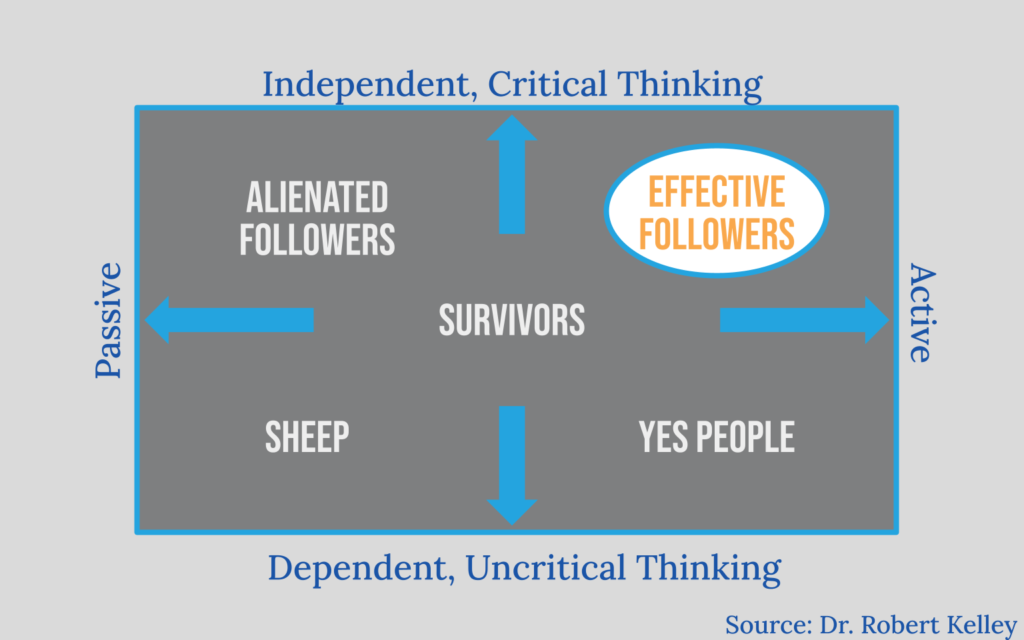
Mindset Shift:
- Leaders cannot force others to become effective followers.
- Great leaders grow great followers and are willing to improv with them.
- “Effective followers” are the goal – not “sheep”
Performance Shift:
- Great leaders are willing to show emotion and get their followers fired-up about making changes that better impact the future of their organization and the community.
- Great leaders give up control. We spend so much of our lives expending energy on what do we do and whether we are doing it right. “Will I influence them if I do this or that?”
A super power of great leaders is helping them move from feeling like prisoners to knowing that their role as a follower is effective and making a difference. Great leaders get their staff angry about a problem and help them channel that frustration and anger as fuel to make positive changes. Everyone’s job has an impact – great leaders help followers see that impact. Great leaders are humble – they see their followers as even more important than themselves.
Following the follower takes the edge off. It asks you to serve up what others are looking for. It grants the follower permission to create your road map as a leader. The truth is, once you have the road map (the direction to their hearts, minds and souls) all you have to do is follow it.
This is what Chris and I – and our team – does everyday. We show managers and leaders how to “follow the follower” at work. If you want to learn more about how your work can add more value and explore better ways to be productive, reach out to Chris!
Follow Chris on Social Media!
Co-Authored By: Betsy Moore, Industrial/Organizational Psychology Consultant & Health Coach 




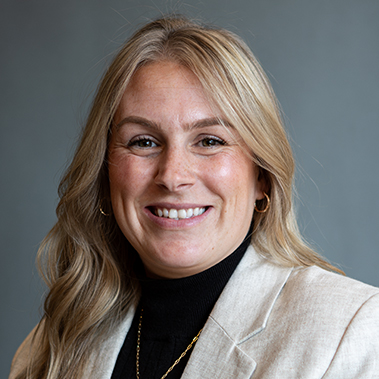

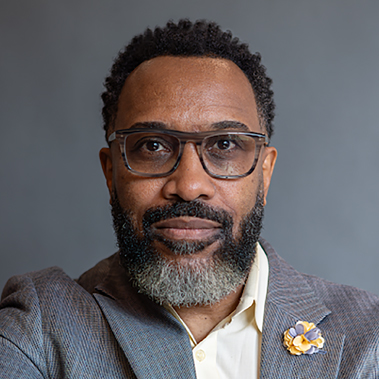





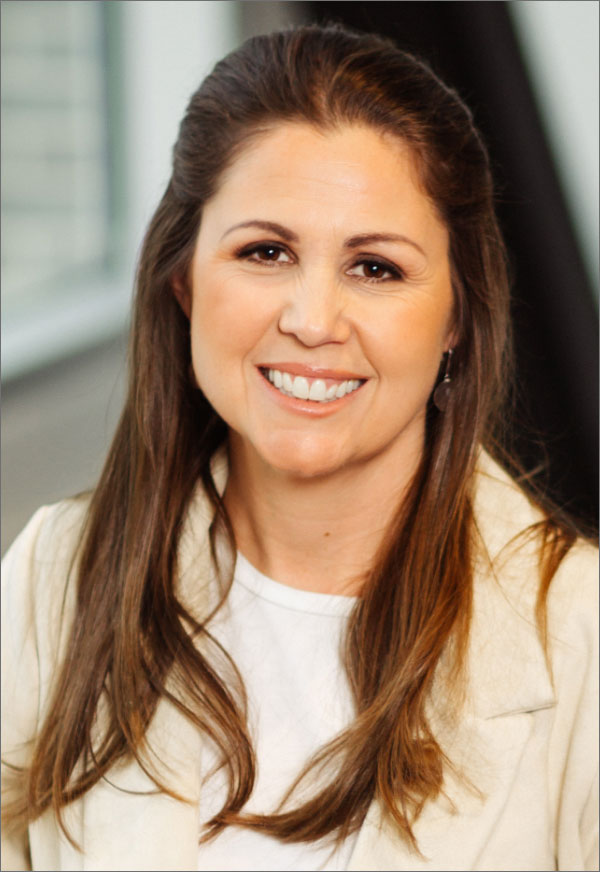

0 Comments